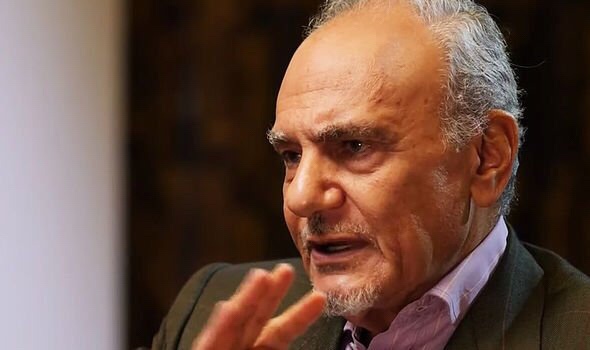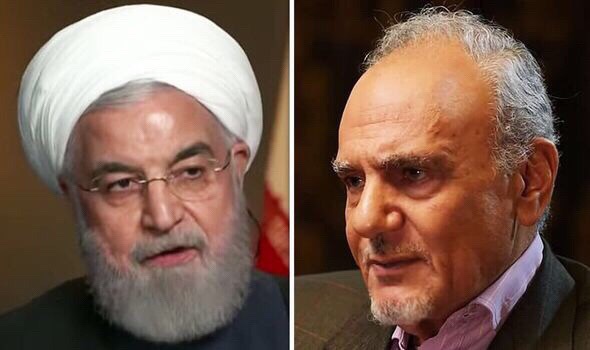IRAN’s “provocative” military stance could spark an extensive conflict in the Middle East resulting in “universal destruction,” Saudi Prince Turki al Faisal warned amid rising tensions with Tehran.
By Aurora Bosotti 16:10, Sun, Dec 22, 2019 | UPDATED: 16:12, Sun, Dec 22, 2019
Threats of an all-out war between Iran and other actors in the Middle East are “not receding” amid Tehran’s refusal to give up the “very negative” military posturing adopted over the past few years. The Islamic Republic was accused of using or supplying ballistic missiles to be used against its regional rivals in a joint Saudi Arabia-US report. The “provocative” position Iran has been maintaining against the international community prompted Saudi diplomat Prince Turki al Faisal to warn a war with Tehran could result in “universal destruction.”
Speaking to Sky News after the report was released, Prince al Faisal said: “We have seen no sign from Iran that they are pulling back on their very negative and provocative military posture.
Asked about his level of concern regarding the Iran threat, the Saudi prince said: “Very concerned.
“Nobody wants war, that’s for sure because nobody would be a winner in a military conflict.

Turki al Faisal admitted to feeling “very concerned” about the chances of war with Iran (Image: SKY NEWS)
The Saudi-US claims are the result of a drone attack on the Abqaiq-Khurais oil processing facility in the Red Sea which saw Riyadh’s oil output severely damaged.
Both countries have claimed Iran coordinated the strike, an accusation Tehran has repeatedly denied despite the Saudi Ministry of Defence claiming debris found at the scene of the attack “proved Iran is behind them.”
However, efforts from Washington and Riyadh to solicit international support to censure Iran’s military were thwarted earlier this month when the United Nations released a new report saying their claims of Iranian involvement in the Abqaiq-Khurais attack could not be corroborated.

Riyadh and the US accused Iran of attacking the oil facilities at Abqaiq-Khurais (Image: GETTY)
The report said: “At this time, it is unable to independently corroborate that the cruise missiles and unmanned aerial vehicles used in those attacks were of Iranian origin and were transferred in a manner inconsistent with resolution 2231.”
The decision came as Iranian President Hassan Rouhani bragged his country is now testing advanced centrifuges for the enrichment of uranium – a move which would be in breach of the Iran Nuclear Deal struck in 2015.
In accordance with the landmark Joint Plan of Comprehensive Agreement (JPOCA), Iran is committed to strict limits on uranium enrichment.
Mr Rouhani boasted about the success of Iran’s centrifuge model and the testing of a new prototype, the state-run IRNA news agency reported.
The Iranian President said: “We have had great achievements and today, Iranian new IR-6 centrifuges are working and models IR-9 are currently being tested.”
US President Donald Trump pulled the US out of the deal earlier this year, citing repeated violations, and imposing stringent sanctions targeting the country’s oil exports.
Last month, Iran started injecting uranium into more than one thousand centrifuges at a nuclear facility built inside a mountain, which nuclear watchdogs have described as a “fortified, underground bunker.”
The move represents a direct breach of the JPOCA rules, with Tehran saying it would halt the process if other signatories to the deal found a way to allow Iran to sell oil on foreign markets.
Iran is currently enriching uranium up to 4.5 percent, above the 3.67 percent limit imposed by the JPOCA, but well below weapons-grade levels of 90 percent.
No comments:
Post a Comment